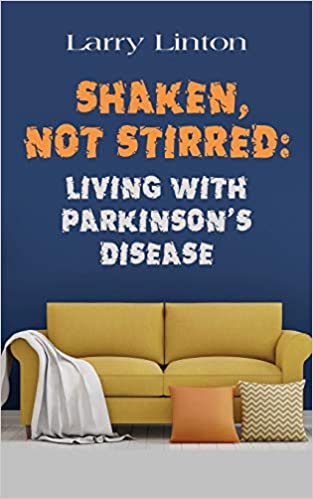
Q&A with Larry Linton
TheQuiver.org: Most of us are aware of the importance of exercising regularly. What many may be less aware of are the benefits of mindfulness and meditation. Could you describe your own experience in this regard?
As we all know, Parkinson’s is a complex disease and its impact is felt physically and mentally. Any form of strenuous physical activity has been shown to slow the progression of the disease. The research on meditation and the practice of mindfulness may not be as well documented but the results have been found to be equally effective and beneficial. I devote an equal amount of effort to my meditation routine as I do to my physical activity. To me, they are both essential for my continued well being and keeping my symptoms under control.
TheQuiver.org: You were a practicing attorney for the first several years post-diagnosis, and as part of your job you were sometimes required to respond to complex questions on an impromptu basis and to participate in high-level meetings. What techniques did you find helpful in being effective in such stressful situations?
Based on my experience, the more control that I had of the environment of the meeting, the better I felt and performed. Of course, that started with preparation. I did a lot of prep work when planning a meeting, or presentation. I also focused on the actual room. Would I be sitting, or standing? If standing, could I be at a podium to steady myself? Instead of holding a mic, I always preferred a lapel-type mic. These were some of the tips and tricks that I adopted when I had the time. For more impromptu meetings, I played for time. If asked a question, I would ask for it to be repeated, I would rephrase the question, I would simply pause – even for one second. All of these techniques gave me those crucial one to three seconds, for my brain to process the question and give me time to formulate the right words in response.
TheQuiver.org: On a trip recently, after an uncharacteristic cheeseburger meal, I was reminded of the negative impact that protein consumption can have on Sinemet absorption. It was one of those many pieces of information we all receive post-diagnosis, but which I had somehow forgotten or minimized. What advice would you offer about diet in connection with the effectiveness of medication and with the slowing the progress of the disease?
I must be honest. One area that I am a bit “light” on is on the subject of diet. I enjoy a good meal, and all of the social trappings that make the occasion memorable. I figure that I can give myself a “pass” having to live with a chronic, progressive, incurable disease everyday. Besides, I lost my father to heart disease when he was just 45, I was 6. So, when I got past that age, but then diagnosed with Parkinson’s instead at the age of 49, the subject of heart disease didn’t seem all that important. That said, I am not reckless and stick to a fairly good, steady diet. But, I do help myself to a second scoop of ice-cream for dessert. And, I like nothing less than a bitterly cold beer on a hot summer’s day! But more seriously, I do take my medication with a full glass of water, on an empty stomach and wait for an hour before eating something, be it breakfast, lunch or dinner – or that second, scoop!
TheQuiver.org: In your book, you discuss the gifts that Parkinson’s has brought into your life. Would you like to share some of your thoughts?
Considering a diagnosis of a chronic, progressive and incurable disease as a gift may seem controversial. But to me, it’s given me time – time to devote to my well being, time to devote to my family, time to engage with the community and forge new friendships. It has also forced me to live in the moment, to not worry about the past, and not to try and predict the future. It is gift, because in many respects, I am living a life that is more rewarding, fulfilling and meaningful after my diagnosis than at any time before then.

